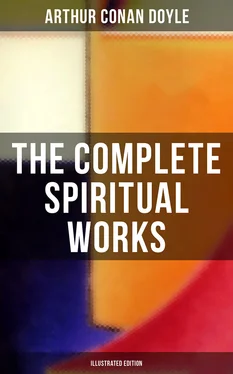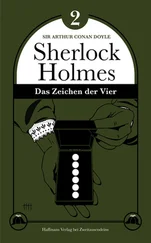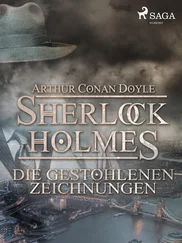It has been asserted by men for whose opinion I have a deep regard – notably by Sir William Barratt—that psychical research is quite distinct from religion. Certainly it is so, in the sense that a man might be a very good psychical researcher but a very bad man. But the results of psychical research, the deductions which we may draw, and the lessons we may learn, teach us of the continued life of the soul, of the nature of that life, and of how it is influenced by our conduct here. If this is distinct from religion, I must confess that I do not understand the distinction. To me it IS religion—the very essence of it. But that does not mean that it will necessarily crystallise into a new religion. Personally I trust that it will not do so. Surely we are disunited enough already? Rather would I see it the great unifying force, the one provable thing connected with every religion, Christian or non-Christian, forming the common solid basis upon which each raises, if it must needs raise, that separate system which appeals to the varied types of mind. The Southern races will always demand what is less austere than the North, the West will always be more critical than the East. One cannot shape all to a level conformity. But if the broad premises which are guaranteed by this teaching from beyond are accepted, then the human race has made a great stride towards religious peace and unity. The question which faces us, then, is how will this influence bear upon the older organised religions and philosophies which have influenced the actions of men.
The answer is, that to only one of these religions or philosophies is this new revelation absolutely fatal. That is to Materialism. I do not say this in any spirit of hostility to Materialists, who, so far as they are an organized body, are, I think, as earnest and moral as any other class. But the fact is manifest that if spirit can live without matter, then the foundation of Materialism is gone, and the whole scheme of thought crashes to the ground.
As to other creeds, it must be admitted that an acceptance of the teaching brought to us from beyond would deeply modify conventional Christianity. But these modifications would be rather in the direction of explanation and development than of contradiction. It would set right grave misunderstandings which have always offended the reason of every thoughtful man, but it would also confirm and make absolutely certain the fact of life after death, the base of all religion. It would confirm the unhappy results of sin, though it would show that those results are never absolutely permanent. It would confirm the existence of higher beings, whom we have called angels, and of an ever-ascending hierarchy above us, in which the Christ spirit finds its place, culminating in heights of the infinite with which we associate the idea of all-power or of God. It would confirm the idea of heaven and of a temporary penal state which corresponds to purgatory rather than to hell. Thus this new revelation, on some of the most vital points, is NOT destructive of the beliefs, and it should be hailed by really earnest men of all creeds as a most powerful ally rather than a dangerous devil-begotten enemy.
On the other hand, let us turn to the points in which Christianity must be modified by this new revelation.
First of all I would say this, which must be obvious to many, however much they deplore it: Christianity must change or must perish. That is the law of life—that things must adapt themselves or perish. Christianity has deferred the change very long, she has deferred it until her churches are half empty, until women are her chief supporters, and until both the learned part of the community on one side, and the poorest class on the other, both in town and country, are largely alienated from her. Let us try and trace the reason for this. It is apparent in all sects, and comes, therefore, from some deep common cause.
People are alienated because they frankly do not believe the facts as presented to them to be true. Their reason and their sense of justice are equally offended. One can see no justice in a vicarious sacrifice, nor in the God who could be placated by such means. Above all, many cannot understand such expressions as the “redemption from sin,” “cleansed by the blood of the Lamb,” and so forth. So long as there was any question of the fall of man there was at least some sort of explanation of such phrases; but when it became certain that man had never fallen—when with ever fuller knowledge we could trace our ancestral course down through the cave-man and the drift-man, back to that shadowy and far-off time when the man-like ape slowly evolved into the apelike man—looking back on all this vast succession of life, we knew that it had always been rising from step to step. Never was there any evidence of a fall. But if there were no fall, then what became of the atonement, of the redemption, of original sin, of a large part of Christian mystical philosophy? Even if it were as reasonable in itself as it is actually unreasonable, it would still be quite divorced from the facts.
Again, too much seemed to be made of Christ’s death. It is no uncommon thing to die for an idea. Every religion has equally had its martyrs. Men die continually for their convictions. Thousands of our lads are doing it at this instant in France. Therefore the death of Christ, beautiful as it is in the Gospel narrative, has seemed to assume an undue importance, as though it were an isolated phenomenon for a man to die in pursuit of a reform. In my opinion, far too much stress has been laid upon Christ’s death, and far too little upon His life. That was where the true grandeur and the true lesson lay. It was a life which even in those limited records shows us no trait which is not beautiful—a life full of easy tolerance for others, of kindly charity, of broad-minded moderation, of gentle courage, always progressive and open to new ideas, and yet never bitter to those ideas which He was really supplanting, though He did occasionally lose His temper with their more bigoted and narrow supporters. Especially one loves His readiness to get at the spirit of religion, sweeping aside the texts and the forms. Never had anyone such a robust common sense, or such a sympathy for weakness. It was this most wonderful and uncommon life, and not his death, which is the true centre of the Christian religion.
Now, let us look at the light which we get from the spirit guides upon this question of Christianity. Opinion is not absolutely uniform yonder, any more than it is here; but reading a number of messages upon this subject, they amount to this: There are many higher spirits with our departed. They vary in degree. Call them “angels,” and you are in touch with old religious thought. High above all these is the greatest spirit of whom they have cognizance—not God, since God is so infinite that He is not within their ken—but one who is nearer God and to that extent represents God. This is the Christ Spirit. His special care is the earth. He came down upon it at a time of great earthly depravity—a time when the world was almost as wicked as it is now, in order to give the people the lesson of an ideal life. Then he returned to his own high station, having left an example which is still occasionally followed. That is the story of Christ as spirits have described it. There is nothing here of Atonement or Redemption. But there is a perfectly feasible and reasonable scheme, which I, for one, could readily believe.
If such a view of Christianity were generally accepted, and if it were enforced by assurance and demonstration from the New Revelation which is coming to us from the other side, then we should have a creed which might unite the churches, which might be reconciled to science, which might defy all attacks, and which might carry the Christian Faith on for an indefinite period. Reason and Faith would at last be reconciled, a nightmare would be lifted from our minds, and spiritual peace would prevail. I do not see such results coming as a sudden conquest or a violent revolution. Rather will it come as a peaceful penetration, as some crude ideas, such as the Eternal Hell idea, have already gently faded away within our own lifetime. It is, however, when the human soul is ploughed and harrowed by suffering that the seeds of truth may be planted, and so some future spiritual harvest will surely rise from the days in which we live.
Читать дальше












